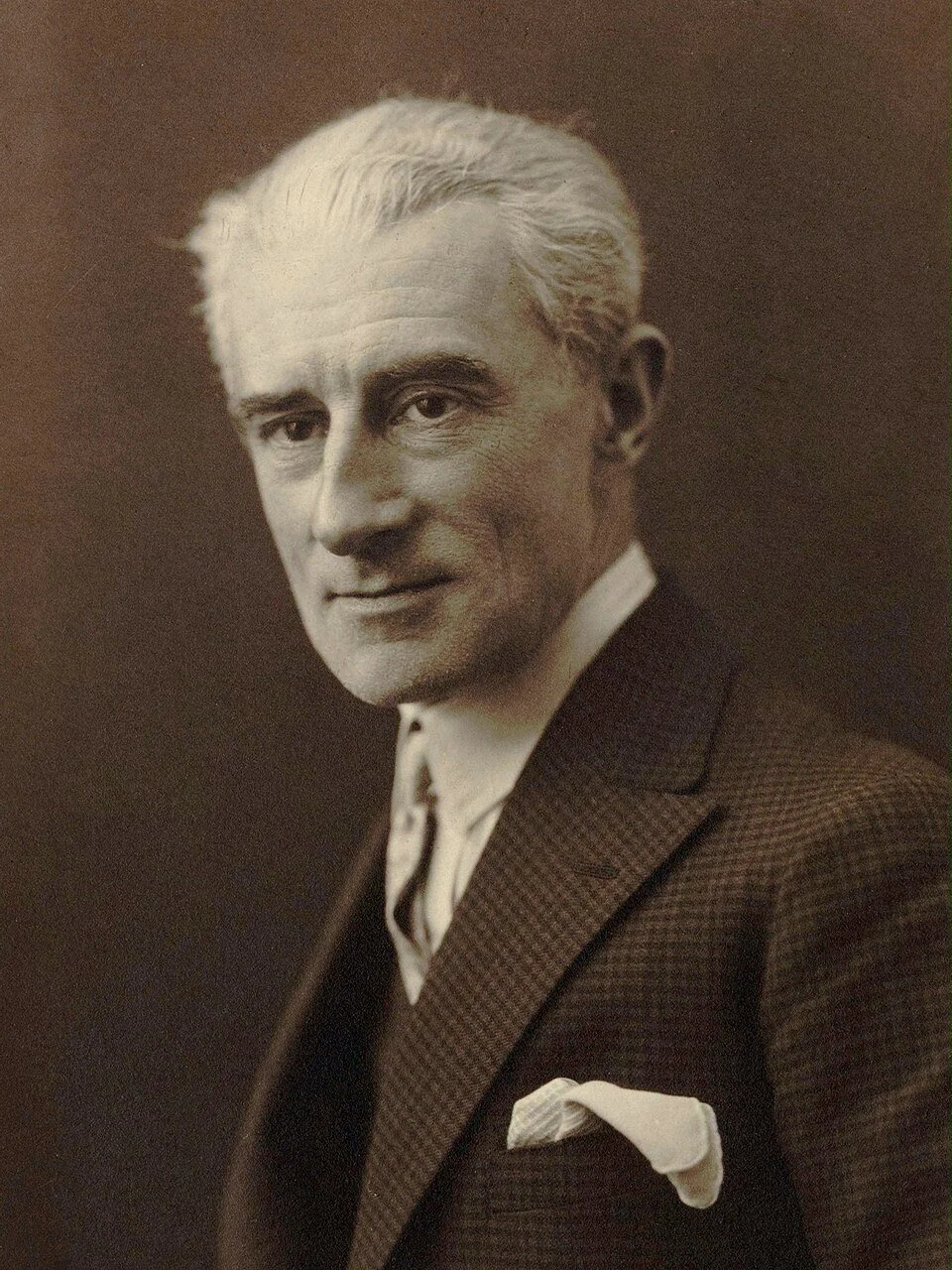Ravel 150
The 8th annual San Francisco International Piano Festival will honor Maurice Ravel (1875-1937) on the 150th anniversary of his birth.
Ravel is widely celebrated as one of the most inventive and influential composers of the 20th century. The son of a Basque mother and Swiss father, Ravel spent his entire life in France while remaining a cultural outsider. Ravel's intensely private character was at odds with his eventual celebrity, though his efforts to win the Prix de Rome became infamous when the composer was rejected for the 5th time…… His dismissal by the establishment was a portent of his enduring legacy, and Ravel’s influence on Debussy, Stravinsky, Prokofiev, and generations of future composers is unmistakable.
For all his eclectic compositions, Ravel was ascetic in his discipline; his meticulous scrutiny of each work cost him countless hours of revision and sleepless nights. Unlike Chopin or Debussy, Ravel was not known as a virtuoso pianist or facile improviser. He relied on the great pianistic exponents of contemporary music like Ricardo Viñes to bring his music to life. As captured in some beautiful silent footage, when Ravel did play, it was with a unique, balletic style. Yet, for his own limitations as a pianist, he was able to extract a seemingly endless treasure trove from the piano in terms of texture, orchestral color, and technical inventions that have kept pianists busy ever since.
This festival explores a broad spectrum of Ravel’s music, including a recreation of his 1928 San Francisco concert—a mix of solo piano, vocal, and chamber music. The program highlights Ravel’s diverse output, from the intoxicating Shéhérazade to the jazzy Violin Sonata, the elegant dances of Le Tombeau de Couperin, and the playful Histoires Naturelles. Gwendolyn Mok returns with her insightful performances, joined by mezzo-soprano Kindra Scharich and violinist Chili Ekman, an alumnus of Young Chamber Musicians.
Ravel’s Miroirs will be the centerpiece of an afternoon recital given by Gwendolyn Mok, paired with Séverac’s Cerdaña, a magnificent suite inspired by the region in the Pyrenees divided by France and Spain. This cultural cross pollination is a subject that is central to the exploration of Ravel’s musical heritage.
In partnership with the Ross McKee Foundation, the McKee Masterclass Series returns, presenting gifted young pianists in dialogue with veteran musical mentors. All sessions are offered free to the public.
Asiya Korepanova will present a solo recital of French piano masterpieces from Debussy’s Suite Bergamasque and Franck’s Prélude, Choral et Fugue to Ravel’s Jeux d’eau and the demonic Gaspard de la nuit. After Ms. Korepanova’s stunning debut recital here last season, this is not to be missed. The following evening, we are thrilled to welcome back Stephen Prutsman for an evening exploring Ravel’s love of Jazz. Mr. Prutsman will treat us to some of his original compositions, tunes by Bill Evans, and the evening will conclude with his original score to Buster Keaton’s 1920 comedy classic, One Week.
The Festival Finale highlights Basque and Spanish influences deeply woven into Ravel’s music. Paul Sánchez leads a program contrasting Spanish and French composers, featuring works by Granados, Albéniz, Rodrigo, and Ravel. Asiya Korepanova joins for duo piano pieces, with baritone Simon Barrad performing Don Quichotte à Dulcinée. The Aveta Trio performs the first movement of Ravel’s 1914 Trio, arguably his most Basque work. The dazzling Rhapsodie Espagnole closes the festival with flair and fireworks.
I wish to thank you personally for your continued belief in and support of the San Francisco International Piano Festival. In our 8th season, it is clear to me that our audience is growing in scope and depth, and it is thanks to so many of you who have been with us since the beginning. Thank you for sustaining the life-affirming performances we have heard at this festival; there is nothing quite like sharing some of the greatest music ever written around a piano.
With gratitude,
Jeffrey LaDeur
Founder & Artistic Director


